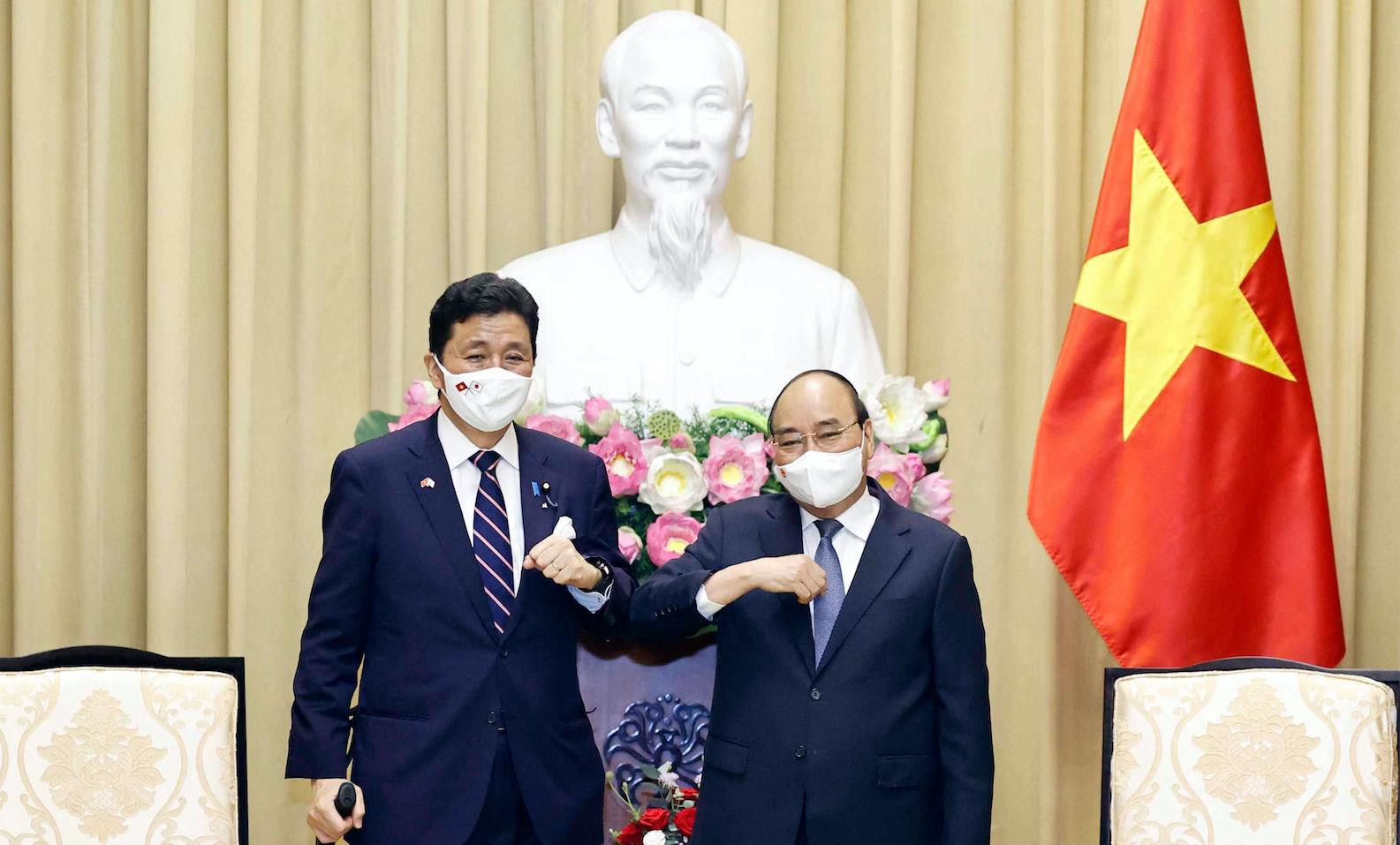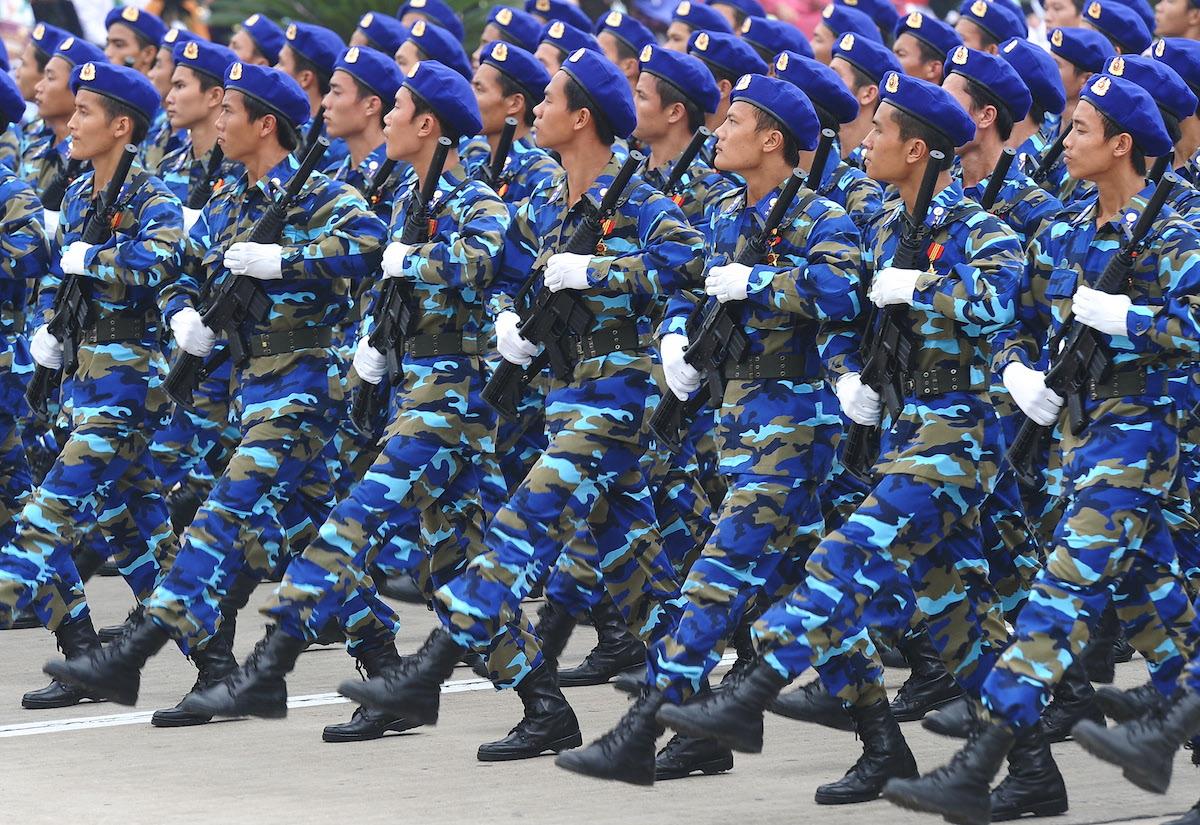(MENAFN- Asia Times) While the US, UK and Australia dropped their nuclear submarine bombshell last week, less noticed was a potential game-changing meeting between Japanese Defense Minister Nobuo Kishi and his Vietnamese counterpart Phan Van Giang.
In Hanoi, the two defense chiefs signed an unprecedented agreement allowing for the sale of military equipment and sharing of defense technology between Japan's Self Defense Forces and Vietnam's military.
The deal also allows for joint military exercises and elevates the bilateral relationship to a new level, including through deeper cybersecurity collaboration. Most significantly, the deal is also expected to pave the way for Vietnam's acquisition of Japanese naval vessels in the near future.
The deal marks a bilateral military warming trend. In March 2020, Japan agreed in a meeting between defense ministry officials in Hanoi to provide Vietnam with technologies for building military ships.
Then, they also agreed to strengthen ties between the Vietnamese Army and Japan's Ground Self-Defense Force, including more visits by the latter's ships and aircraft to Vietnam.
Kishi's recent visit, his first foray abroad since becoming Tokyo's defense chief last September, symbolically followed on US Vice President Kamala Harris' high-level trip to Hanoi in late August.
Harris called on Vietnam to join the US in challenging China's“bullying” in the South China Sea and expressed support for sending a US Coast Guard cutter to Vietnam to help defend its maritime interests.
The US is known to be angling to upgrade relations from a comprehensive partnership to a strategic partnership, a designation that would pave the way for even more strategic cooperation.
While embracing Japanese and US overtures to help shore up its security, Hanoi is careful not to overly irk China – a policy underlined in its“four no's” foreign policy that bars formal military alliances and prioritizes neutrality. It was thus lost on few observers that Chinese Foreign Minister Wang Yi traveled to Vietnam coincident with Kishi's visit.

Vietnamese President Nguyen Xuan Phuc (R) bumping elbows to greet Japan's Defence Minister Nobuo Kishi during a meeting in Hanoi. Photo: AFP via Vietnam News Agency / Stringer
In the wake of Harris's visit, Vietnamese Prime Minister Pham Minh Chinh reportedly assured Chinese Ambassador Xiong Bo that “Vietnam will not side against China.” But Vietnam's rising initiatives with the US and Japan, two of the core four Quad members along with India and Australia, will inevitably be seen in Beijing as antagonistic.
It all comes ahead of a highly anticipated first in-person meeting of Quad member heads of state this week in Washington, DC. China already sent a message of displeasure by deploying its strongest warships near Alaska in late August, a showcase of its ever-growing naval capabilities and reach.
Kishi has been uncharacteristically blunt and outspoken for a Japanese statesman by repeatedly alleging that China is actively trying to change the status quo in the Indo-Pacific region through force and coercion.
In Hanoi, Kishi reiterated that Japan is committed to forestalling any coercive unilateral action that alters the status quo and raises tensions in the region – an unmistakable reference to China.
Kishi's political party, the Liberal Democratic Party, has for years sought reforms to allow for more military flexibility within the confines of the nation's post-World War II constitution, which strictly limits Japanese military capability to narrowly defined self-defense initiatives.
That has effectively forced Japan to rely solely on its cornerstone alliance with the US for its national security, including vis-à-vis China. In an interview with the Sydney Morning Herald last month, Kishi went so far as to hint that the Japanese Diet may soon alter Japan's pacifist constitution to better meet rising security challenges in the region.
Kishi has made clear his aim to diversify Japan's military ties with regional powers such as Vietnam and expand its influence and security role. The newly signed defense asset and technology-sharing deal with Hanoi is thus part of a wider agenda to“strengthen Japan's defense industrial base and is expected to contribute to the country's security,” according to Kishi.

Japan's Defense Minister Nobuo Kishi at his office in Tokyo, Japan, August 27, 2021. Photo: AFP via EyePress News
Vietnam and Japan already enjoy a robust economic relationship with more to come through their new latest agreement, which pledges to further support Japanese enterprises and investment in the country.
To diversify defense ties beyond their traditional US ally, Japan has signed similar defense agreements with other regional powers including the Philippines, Australia and Indonesia. But the Japan-Vietnam deal, in particular, has broad implications for the region, analysts and observers say.
For Japan, it speaks to Tokyo's growing willingness to voice concern and counteract what it sees as increasing Chinese aggression in the region. Japan and Vietnam are both embroiled in longstanding territorial disputes with China in the East China Sea and South China Sea, respectively, where Beijing claims sovereignty and is aggressively pressing its claims through incursions into their territorial waters.
Kishi emphasized Vietnam's growing strategic importance, and both sides reiterated their commitment to adhere to the 1982 United Nations Convention on the Law of the Sea (UNCLOS). During her visit to Hanoi, Harris said“we need to find ways to pressure and raise the pressure, frankly, on Beijing to abide by the [UNCLOS] and to challenge its bullying and excessive claims.”
Japan has also used unprecedented terminology of concern over Taiwan, labeling Beijing's escalating threats against the self-governing island a“crisis” in a recent defense white paper . But alarm bells over China's stated ambition to“reincorporate” Taiwan to the mainland and reset the region's balance of power in its favor have been going off in Tokyo for some time.
For Vietnam, the deal with Japan represents a chance to further diversify and modernize its military hardware. Vietnam has traditionally relied on Russian weaponry but in recent years has bought arms from the US.

Vietnamese maritime police march in Hanoi. Hanoi has been bolstering its defenses in areas in the South China Sea. Photo: AFP / Hoang Dinh Nam
Vietnam has an interest in expanding its navy as China continues to ignore the 2016 Permanent Court of Arbitration at The Hague ruling deeming Beijing's nine-dash line claims to as much as 90% of the South China Sea invalid.
China's militarization of the features it controls in the sea has accelerated since, putting more pressure on Vietnam, the Philippines and Malaysia, among others.
Vietnamese anxiety about Chinese expansionism is well known. Yet despite warming relations with the US, European Union and Japan, and intense territorial disputes with China, Hanoi has remained committed to its “four no's” foreign policy philosophy, which prioritizes neutrality and has helped underwrite the region's relative peace to date.
Chinese Foreign Minister Wang's recent visit to Vietnam was no doubt made in part to remind Vietnam of its longstanding post-Cold War commitment to neutrality, a position that will be increasingly difficult to maintain as superpower tensions rise in nearby waters.
MENAFN21092021000159011032ID1102836356
Legal Disclaimer:
MENAFN provides the information “as is” without warranty of any kind. We do not accept any responsibility or liability for the accuracy, content, images, videos, licenses, completeness, legality, or reliability of the information contained in this article. If you have any complaints or copyright issues related to this article, kindly contact the provider above.